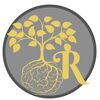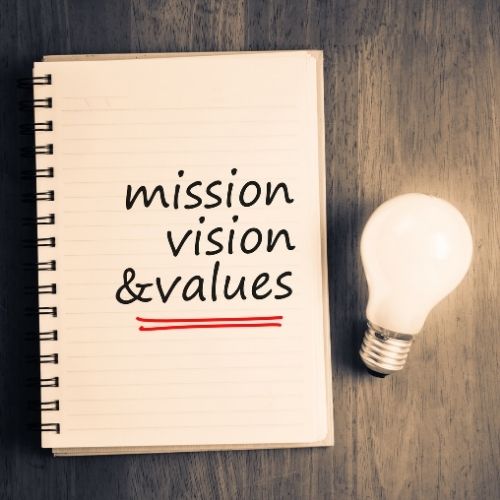For this topic please review the resources on this page and complete workbook 2 below.
| workbook_2.docx |
The purpose of life is to lead a life of purpose" Dan Millman
When you have completed this page - come back and review these topics
|
We all have limited time and energy and by identifying what we value in life and want to achieve - we can make better decisions about investing our time and energy into activities in support of that. With a clear purpose of what we are moving towards - we can start to focus on mastery of key skills that will support that journey. As our expertise grows and we begin to get positive feedback, our growth accelerates as we build more confidence and become more self assured.
Finding purpose and expressing your creative potential in alignment to that is the greatest gift you can give the world. This is captured in many famous saying including what Gandhi said of: "be the change you wish for in the world." When our creativity in fueled by our passion we are capable of great feats of imagination and productivity that can transform our lives in every way and have a beneficial impact on the world around us. It is my hope that we all can find this magic alignment and shine brightly in the world. |
We have all felt the magnetic charisma of someone leading an authentic and purposeful like, felt the calm focus of being immersed in creative spaces and seen how people have transformed their lives when they can harness those powers to add value to the world.
When living a fragmented life, filled with road blocks, low energy, criticisms from others and locked into meaningless pursuits for money - it can seem very hard to navigate out of those dark spaces that cling to you and hold you back from progress. And there is no easy solution to navigating out of that space - other than determined and purposeful effort - with an unlimited number of obstacles to navigate along the way.
However, a robust map to guide you and the support of a community of other inspired learners provides a robust structure to navigate that journey.
Within this course we pick up that journey, at whatever stage you have left it, and carry forward as a community inspired by a common vision and purpose.
When living a fragmented life, filled with road blocks, low energy, criticisms from others and locked into meaningless pursuits for money - it can seem very hard to navigate out of those dark spaces that cling to you and hold you back from progress. And there is no easy solution to navigating out of that space - other than determined and purposeful effort - with an unlimited number of obstacles to navigate along the way.
However, a robust map to guide you and the support of a community of other inspired learners provides a robust structure to navigate that journey.
Within this course we pick up that journey, at whatever stage you have left it, and carry forward as a community inspired by a common vision and purpose.
Creating a Mission Statement:
Your mission is how you want to show up in the world and use your strengths in ways that add value to people’s life’s, mitigate some of the suffering of others and provides for a sense of self-fulfilment through making a worthwhile contribution within the world. Your mission is an area you want to express yourself and provide value to the world aligned to your value framework.
Your mission guides you as you make plans to improve an aspect of your life. A mission statement focuses attention on who you want to be. Your mission becomes a source of inspiration and commitment to your future. It provides meaning to every task you want to accomplish and becomes the driving force behind your goals. A mission statement articulates the big idea of who you are and what you are working towards as a goal. It expresses how you wish to be known and the legacy you want to share with others.
Your mission reflects your dream; it is a picture of the future you would like to create. It should be concise and easy to remember. Gordon D’Angelo, author of Vision: Your Pathway to Victory, describes a mission statement as “the definable intention from which preparation is formed.” Jennell Evans, CEO of Strategic Interactions, defines a mission as an “optimal desired future state – the mental picture – of what an organization [or individual] wants to achieve over time.”
Consider these questions as you compose a meaningful vision statement:
As you consider a personal mission statement, Stephen Covey, author of The 7 Habits of Highly Effective People, suggested, “Begin with the end in mind.” It is composed in present tense and summarizes how you plan to execute your vision.
A mission should:
To get an idea, have a look at Mission statements of some of the CEOs across the world:
Your mission guides you as you make plans to improve an aspect of your life. A mission statement focuses attention on who you want to be. Your mission becomes a source of inspiration and commitment to your future. It provides meaning to every task you want to accomplish and becomes the driving force behind your goals. A mission statement articulates the big idea of who you are and what you are working towards as a goal. It expresses how you wish to be known and the legacy you want to share with others.
Your mission reflects your dream; it is a picture of the future you would like to create. It should be concise and easy to remember. Gordon D’Angelo, author of Vision: Your Pathway to Victory, describes a mission statement as “the definable intention from which preparation is formed.” Jennell Evans, CEO of Strategic Interactions, defines a mission as an “optimal desired future state – the mental picture – of what an organization [or individual] wants to achieve over time.”
Consider these questions as you compose a meaningful vision statement:
- What are your most notable past achievements?
- How do you want to be remembered?
- What values do you want to cultivate?
- What can I do that adds value to my life and value to the lives of others?
- What are my talents?
As you consider a personal mission statement, Stephen Covey, author of The 7 Habits of Highly Effective People, suggested, “Begin with the end in mind.” It is composed in present tense and summarizes how you plan to execute your vision.
A mission should:
- Serve a purpose higher than yourself
- Align with your natural strengths.
- Be aligned with an area of output you can leverage and scale to reach more people.
To get an idea, have a look at Mission statements of some of the CEOs across the world:
- To serve as a leader, live a balanced life, and apply ethical principles to make a significant difference.” – Denise Morrison, CEO of Campbell Soup Company.
- “I define personal success as being consistent to my own personal mission statement: to love God and love others.” – Joel Manby, CEO of Herschend Family Entertainment.
- “To be a teacher. And to be known for inspiring my students to be more than they thought they could be.” - Oprah Winfrey, Founder of OWN, the Oprah Winfrey Network.
- “To have fun in [my] journey through life and learn from [my] mistakes.” - Sir Richard Branson, Founder of the Virgin Group
- Your mission should align with your values. It becomes a filter through which you choose your words, thoughts, and behaviour. Personal mission statements are the compass that guide decisions.
Video Resources
|
|
|


